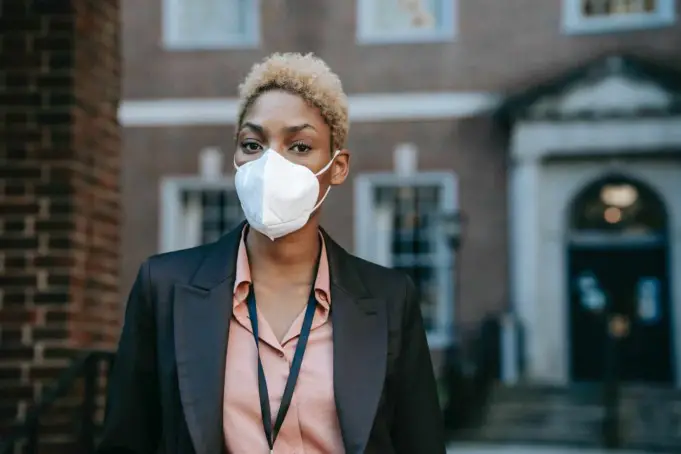In the first month of 2020, the World Health Organization (WHO) made public the outbreak of a novel coronavirus disease, which originated from Wuhan, China, to be a Public Health Emergency that concerns the whole world.
The world health organization went further to warn that there was a high risk of the COVID-19 disease spreading to other parts of the world.
In March of 2020, the novel coronavirus spread as far as Nigeria, in West Africa, causing the WHO to make the assessment that COVID-19 is a pandemic.
WHO and public health authorities around the world are acting to contain the COVID-19 outbreak.
However, this time of crisis is generating stress in the population. Below are the mental health
Considerations that were developed by the World Health Organisation’s Department of Mental Health and Substance Use as messages that target various groups to support psychological and mental wellbeing during the COVID-19 outbreak.
We have rewritten them here, and we hope our readers take them seriously.
- As you already know, COVID-19 has now affected people from different countries, in several geographical locations. Never attach the disease to any nationality or ethnicity. Be empathetic to everyone who has been affected, from any country, no matter where they are. People who have been affected by the Covid-19 disease have not committed any crime, and they deserve all the support, kindness, and compassion.
- Do not refer to people who have COVID-19 as “victims,” ‘’ COVID-19 cases”, “diseased,” or “COVID-19 families”. They are “people who have COVID-19”, “People who are recovering from COVID-19”, “people who are being treated for COVID19”, and after they recover from the COVID-19 things will go back to normal for them; their life will go on with their families, jobs and loved ones. It is vital to separate an individual from having an Identity that is defined by the COVID-19 if we must reduce stigma.
- Minimize reading, watching, or listening to any news that will cause you to feel distressed or anxious; Only seek information from trusted sources and primarily to take practical steps to make plans
and protect yourself and those you love. Make sure to seek information updates at particular times during the day, at least once or twice.
It is true that the sudden and almost regular stream of news reports about outbreaks like this can cause anyone to become worried. Go for the facts, not misinformation or the rumors.
Gather information at regular intervals, from the WHO website and your local health authorities, so that you can tell the difference between facts and rumors. The facts may not be perfect, but they can minimize fear.
- Protect yourself and offer all possible support to others. Assisting other people in their time of need can be beneficial to that person receiving support, and beneficial to the helper as well. For example, check-in by phone on family, neighbors, or people in your community who may be in need of some extra assistance. The best way to fight COVID-19 together is by Working as one community.
- Find the chance to amplify positive and hopeful stories, as well as positive images of local people who are experiencing COVID-19. For instance, stories of those who have recovered from COVID-19 or who have been of support to a loved one and are ready to share their experience.
- Honor and respect caretakers and healthcare workers are doing all they can to support people who are affected by COVID-19 in your community. Acknowledge the role that these people play to save lives and keep everyone else safe.
- For health workers, it is very likely for you and your colleagues to feel under pressure in a time like this. It is quite normal to feel like this with all that is going on, but the stress and tiredness is no sign of weakness or a reflection that you are not working hard or well enough. In this time, it is important to manage your mental and psychological health, as much as your physical.
- Take care of yourself properly at this time. Try and adopt only helpful coping strategies such as getting enough rest and respite both at work or between your shifts, eat the right amount and healthy food, engage in physical activity as much as you can, and stay in contact with friends and family. Avoid using any unhelpful and unhealthy coping strategies such as alcohol, tobacco, or other drugs. In the long run, these can make your mental and physical well-being worse. This is an unprecedented and unique scenario for many health workers, particularly if they have never been involved in responses that are similar. Even so, using healthy strategies that have been helpful to you in the past to manage stress can benefit you now. You are in the best position to identify the best way to most likely to de-stress, and you should not hesitate to keep yourself psychologically well. What is ongoing is not a sprint; it’s a marathon.
- Some healthcare workers at this time may, unfortunately, experience avoidance by their friends, family, or community as a result of the stigma or fear. This rejection can make a situation that is already challenging far more difficult. If possible, do well to stay connected with your loved ones with the use of digital methods. This is one of the best ways to maintain contact with those you love at this time. Turn to your colleagues or other trusted persons for all the social support you can get, as your colleagues may be dealing with similar experiences to you.
- Use understandable methods to share messages with people around you with intellectual, cognitive, and psychosocial disabilities. Utilize forms of communication that do not solely rely on written information. If you are a team leader or manager in a health facility.
These are the first ten mental health and psychological considerations for COVID-19, according to the WHO.
We hope that you take these seriously and abide by all the guidelines made available by the WHO and your local government at this time.
Kindly leave comments and inquires below.












